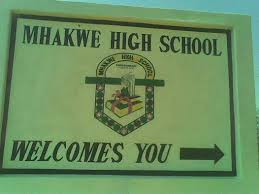
Ivory Coast’s disputed leader Laurent Gbagbo (65) whose refusal to step down after losing a presidential election in November last year triggered a civil war in the West African country, was captured by French forces yesterday.
News that he was being held was broken by a Gbagbo aide and confirmed by France’s ambassador and forces loyal to his rival, Alassane Ouattara.
Gbagbo was handed over to forces loyal to President-elect Ouattara, who has been based at the Golf Hotel in Abidjan, the commercial capital, since the dispute started four months ago.
“He (Gbagbo) has been handed to the Republican Forces,” said Apollinaire Yapi, an advisor to Ouattara’s government.
“He is here at the Golf Hotel. He arrived by road and he is with several members of his family.”
Gbagbo’s capture comes after United Nations and French helicopters fired on his residence in Abidjan following a call from Ouattara to “neutralise” the former president’s heavy weapons.
Local analyst Eldred Masunungure, from the University of Zimbabwe’s political science department, said Gbagbo’s capture was a lesson to other leaders who did “not listen to the voice of the people”.
Masunungure said: “It is important to listen to the voices of the people and not to suppress that voice. Gbagbo was doing that in Ivory Coast. People had spoken loudly that they wanted someone else and he defied the voice of the people.
- Chamisa under fire over US$120K donation
- Mavhunga puts DeMbare into Chibuku quarterfinals
- Pension funds bet on Cabora Bassa oilfields
- Councils defy govt fire tender directive
Keep Reading
“These are the consequences of such defiance. The lesson to all others who are in governance is that you need to take special care of those you govern. No one has an eternal right to govern.”
Troops loyal to Ouattara, the internationally-recognised winner of the November 28 election, had failed in various attempts to seize Gbagbo’s house since April 5.
“The lesson is that you need to govern in the interests of your citizens, not in your narrowly defined interests, whether they are sectional, party or tribal. You must govern in the national interest. It is very important to put the nation first,” said Masunungure.
Gbagbo had ruled the world’s top cocoa producer for a decade, weathering a coup attempt in 2002 and a subsequent civil war that left the country split between the rebel-held north and government-controlled south. The insurgents became the Republican Forces this year, backing Ouattara (69) and sweeping south in the past month before entering Abidjan on March 31.
Backing from Ivory Coast’s army and police had allowed Gbagbo to resist four months of international pressure as the UN, African Union, European Union and United States called on him to hand over power to Ouattara. Gbagbo alleged voter fraud and said he won the election.
Gbagbo tried to nationalise banks and cocoa stocks as sanctions cut off his sources of income.
He attacked Ouattara, whose father’s family is from neighbouring Burkina Faso, as a foreigner and a tool of French interests and capitalised on resentment from the mainly Christian south towards the country’s predominantly Muslim north.
The former history professor and long-time opponent of former leader Felix Houphouet-Boigny came to power in 2000 after he won an election in which Robert Guei also claimed victory.
Thousands of protesting supporters enabled Gbagbo to enforce his victory.
The 2002 uprising and prolonged conflict led to him extending his presidential mandate, which was supposed to end in 2005.
A peace deal signed in 2007 between Gbagbo and the rebel New Forces led to the instalment of Guillaume Soro as prime minister. Soro joined Ouattara’s administration after the November 28 vote.
—Agencies/Staff Writer







